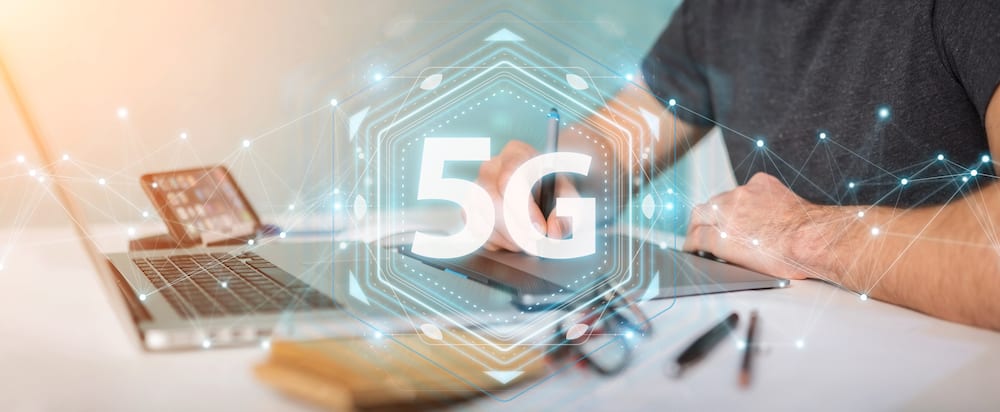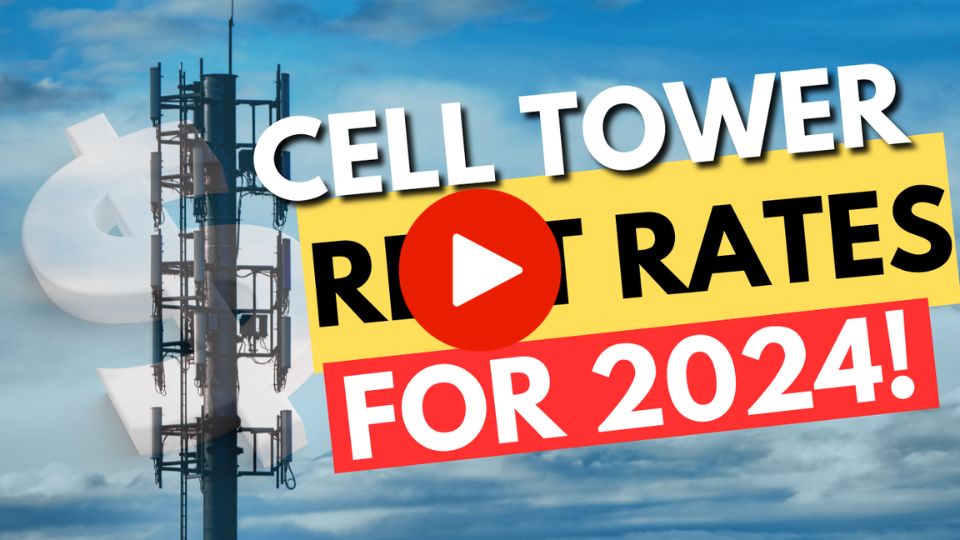
What is 5G?
The 4G wireless networks that most of us have access to use relatively low radio frequencies compared to new 5G networks that are currently being built out.
The high frequencies used by 5G allow for many upgrades over 4G. They allow faster connections, support more devices, and will allow you to do more than you ever have before with your phone or other wireless device.
How fast will 5G be? 5G will be 10 to 100 times speedier than your current wireless connection, and even faster than anything you can get with a physical fiber-optic cable going into your house.
It is also not just additional speed that will be achieved by 5G, but, just as important, low latency. Latency is the response time between when you click to download data and when the network responds.
Lastly, 5G is designed with the ability to connect a far greater number of devices than current 4G networks can connect. How is this a benefit? Well, 5G can handle equipment associated with day-to-day business, ranging from those used on a farm to those used by financial institutions to trade assets.
In a nutshell, 5G will allow you to do more, and do it faster, without interruption.
What is Small Cell?
For the last 30+ years the landscape has been covered with traditional large macro cell towers. Recently, many wireless carriers have focused on small cell equipment which serves a more limited area and, as a result, requires the mass deployment. Wireless carriers’ deployment via small cells’ smaller antenna units can be attached to utility or light poles or other municipal owned structures. Small cell units can be about as big as a common backpack, and they can range upwards to 28 cubic feet, which is the limit established by the Federal Communications Commission (“FCC”).
FCC 5G Oversight
FCC has set forth certain mandates, the most recent being in 2018, that oversees the deployment of small cells. The rules established by the FCC included guidelines for local governments, telecoms, and other parties to follow as the 5G explosion grows. The primary purpose of the FCC’s most recent report was to remove obstacles that have been slowing 5G deployment.
Amongst many things, the 2018 FCC Order outlines timelines for local governments to rule on small cell applications, and controversial limits on fees that a municipal body can charge and, lastly, overall restrictions that can be employed by municipality.
The FCC rules have been met with much pushback, including several challenges by municipalities, with the most recent currently taking place in the U.S. Court of Appeals for the 9th Circuit where approximately 30 cities are challenging many of the guidelines set forth in 2018 FCC Order.
FCC’s 2018 Order
The FCC’s 2018 Order that set forth several guidelines, with new requirements falling into three categories:
1. Shot Clocks
The FCC’s 2018 Order sets forth certain “shot clocks” related to wireless carriers’ applications associated with 5G installations, more particularly, for applications related to small cell deployment. The FCC Order’s shot clock guidelines state that a municipality must rule on it within 60 days of the submittal for of their installation of equipment attachments to existing poles/structures, and 90 days for installation of a new pole/structures.
A municipality does have some ways to push back in that they may blow the whistle and stop the shot clock if a small cell application is incomplete, incorrect or in violation of other statutes. Notwithstanding, a municipality must blow the afore-mentioned whistle within 10 days of receiving a wireless carrier’s small cell application.
2. Application/Use Fees
One on the most contested areas of the FCC’s 2018 Order is the FCC’s guidelines for fees that a municipality can charge related to both fees associated with applications filed by a wireless carrier, as well as annual/monthly fees that a city/town can charge for occupancy/use of either a municipality’s existing structures and/or raw land. The FCC Order stated a municipality can charge wireless companies no more than a reasonable approximation of a municipality’s actual costs related to a wireless carrier’s 5G deployment in its city/town.
The above reasonable approximation of a municipality’s actual cost would cover application submittal/review fees, ground space use/right-of-way access, and a comprehensive overview of any permits required before any 5G equipment is installed.
The FCC did not actually step-up and set a dollar limit on the amounts of fees that can be charged, but it only suggests amounts that it considered reasonable: one-time application fees of $500 for the use of existing municipal structures and $1,000 per structure that would need to be installed. The FCC also laid down an annual fee guideline of a $270 per year that a city/town could charge per small cell site installed.
3. Restrictions
Municipalities have had to catch up with the 5G explosion and how it will impact them and their citizens. Cities have several concerns from health/safety issues to aesthetics impacting both certain residential and commercial areas in their town.
The 2018 FCC Order does allow a municipality to set forth certain standards, guidelines and even restrictions to limit, or even eliminate, the possible negative impact that a wireless carrier’s implementation of 5G equipment may have.
Notwithstanding, while a city/town does have some power to pushback, the 2018 FCC Order does not provide unfettered power to a municipality to prevent a wireless carrier’s small cell deployment in that city. In addition, a municipality’s standards of small cell installation can’t discriminate amongst the wireless carriers and must be clear and established so as not to cause unreasonable delays.
A municipality may feel overwhelmed when approached by a wireless carrier looking to install small cell or other types of wireless technology in their city/town.
If your city/town has questions regarding not only the 5G boom and how it impacts you, but any other questions regarding the wireless industry, please contact us today.
Remember, the wireless carriers have experts working for them, shouldn’t you?



